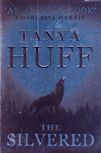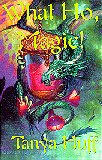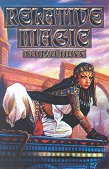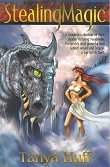Rebecca may be 'simple', but she can See the little people, including the little man who lives in her tree outside her Toronto apartment. Then she finds him stabbed, bleeding. She turns to the one person who may be able to help -- Roland, unknowingly on his way to becoming a Bard. Together with the bag lady Mrs Ruth, Rebecca's social worker Daru, Tom the cat, and Evan the champion of Light, they start of a battle of Light against Dark where failure will mean the end of the world itself.
That summary of the plot might make it sound clichéd, but the reality is very different. As ever, Tanya Huff manages to infuse her story all the way through with tension, drama, humour, real characters with moral dilemmas, and unexpected plot twists.



































